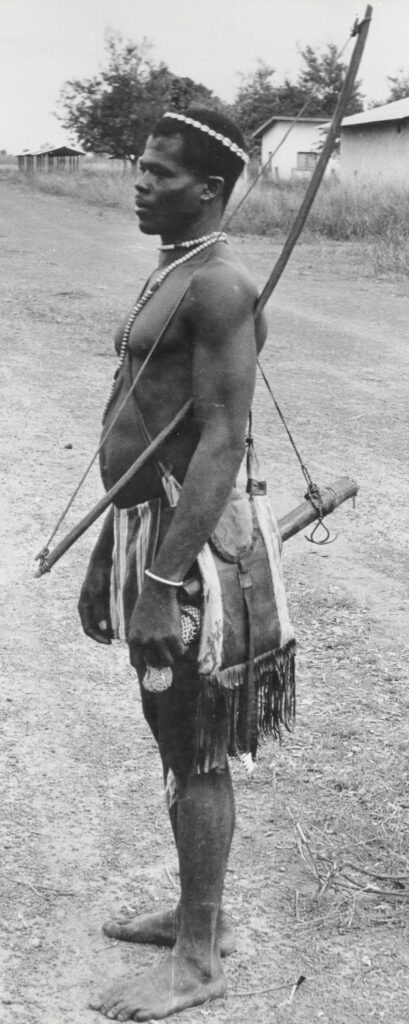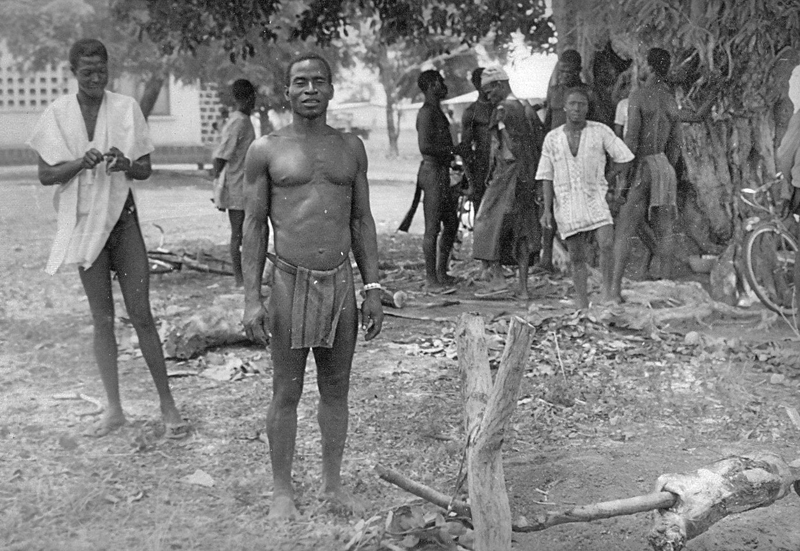
After a year of living and working in Sirasso, I was still not sure of my place and neither were the villagers. I had settled in pretty well and was making a lot of friends. Even though my closest friend adopted me and I took his name Coulibaly, then was called “little brother,” the old people weren’t quite sure how to treat me.
Then, at the beginning of my second year, my generation (those who lived three stages of seven years, that is 21 years) entered the Poro, the society of initiation for men, where they would still be another seven years. You could call it “military service,” but it was much broader.
In the Poro they learned all the life skills, responsibilities, and spiritual knowledge that would make them grown men. They had been called to service in all aspects of community life. As I was of Poro age and working with my brothers to build a market place, the chiefs and the elders knew where I belonged. They gave me the status of one of the Poro chiefs, so they could command me.
Next: An Intimate Perspective
Most people view unfamiliar cultures through the prism of tourism, celebrations, and arts detached from everyday life. To people in industrialized countries, traditional indigenous cultures seem exotic or “primitive.” Taken out of context, what they see is simply a curiosity to them. (Read More >>)
